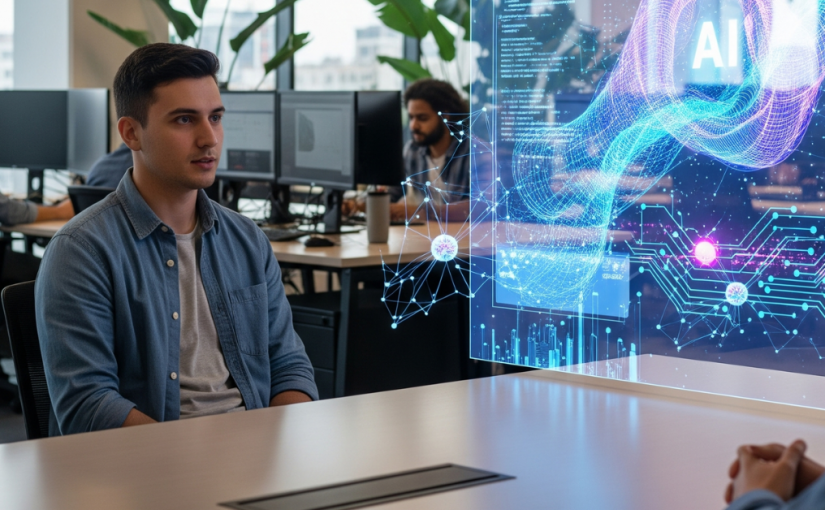Assessing technical skills is never easy. A technical interview is useful not only because it tests coding ability, but also because it reveals how someone thinks, communicates, and approaches problems. That’s something you don’t always get from a written test or assignment.
Traditionally, interviews focused on algorithm puzzles, syntax, and textbook system design. But in today’s world, where tools like GitHub Copilot and ChatGPT can generate code instantly. What matters now is how engineers use these tools wisely, review what’s produced, and make sound decisions.
Here are some types of interview questions that matter more in the age of AI:
1. Code Review
Q: If an AI assistant generated this code snippet, how would you check whether it’s safe, correct, and efficient?
A strong answer should include testing edge cases, checking for security issues, and making sure the code is clear and maintainable, and not just trusting the AI output blindly.
2. Debugging AI-Generated Code
Q: Here’s a function that works but is failing in one edge case. Walk me through how you’d debug it and identify the issue.
This shows how the candidate reasons through a problem, not just whether they can fix it.
3. AI in System Design
Q: Design a job recommendation system that uses an AI model. How do you handle cases where the AI gives irrelevant or biased suggestions?
Good answers mention fallback logic, monitoring, feedback loops, and awareness of fairness and bias.
4. Prompt Engineering / Problem Framing
Q: Imagine you need an AI to generate boilerplate code for a REST API. What would your first prompt look like, and how would you refine it if the output wasn’t good enough?
This tests whether the candidate can clearly frame problems and work with AI as a collaborator.
5. Critical Thinking Beyond AI
Q: An AI tool suggests a clever one-line solution, but it’s hard to read. Do you keep it or rewrite it? Why?
A thoughtful answer should focus on maintainability and clarity, knowing that humans will maintain the code.
Reverse Engineering and Critical Thinking Matter
These questions go beyond memorizing algorithms and simple coding drills. They’re about how candidates think, adapt, and make decisions in a world where AI can generate code instantly. They highlight skills AI can’t replace: reviewing and reverse engineering AI outputs, debugging edge cases, framing problems clearly, handling bias responsibly, and prioritizing readability over shortcuts.
Boilerplate may be automated, but judgment, problem deconstruction, and collaboration remain uniquely human, and that’s what modern interviews should uncover.

A multifaceted professional known for diverse interests and contributions in various fields, including management, technology, education and entrepreneurship. Also the founder of ITPro.lk, bringing a unique perspective and industry knowledge to writing.
